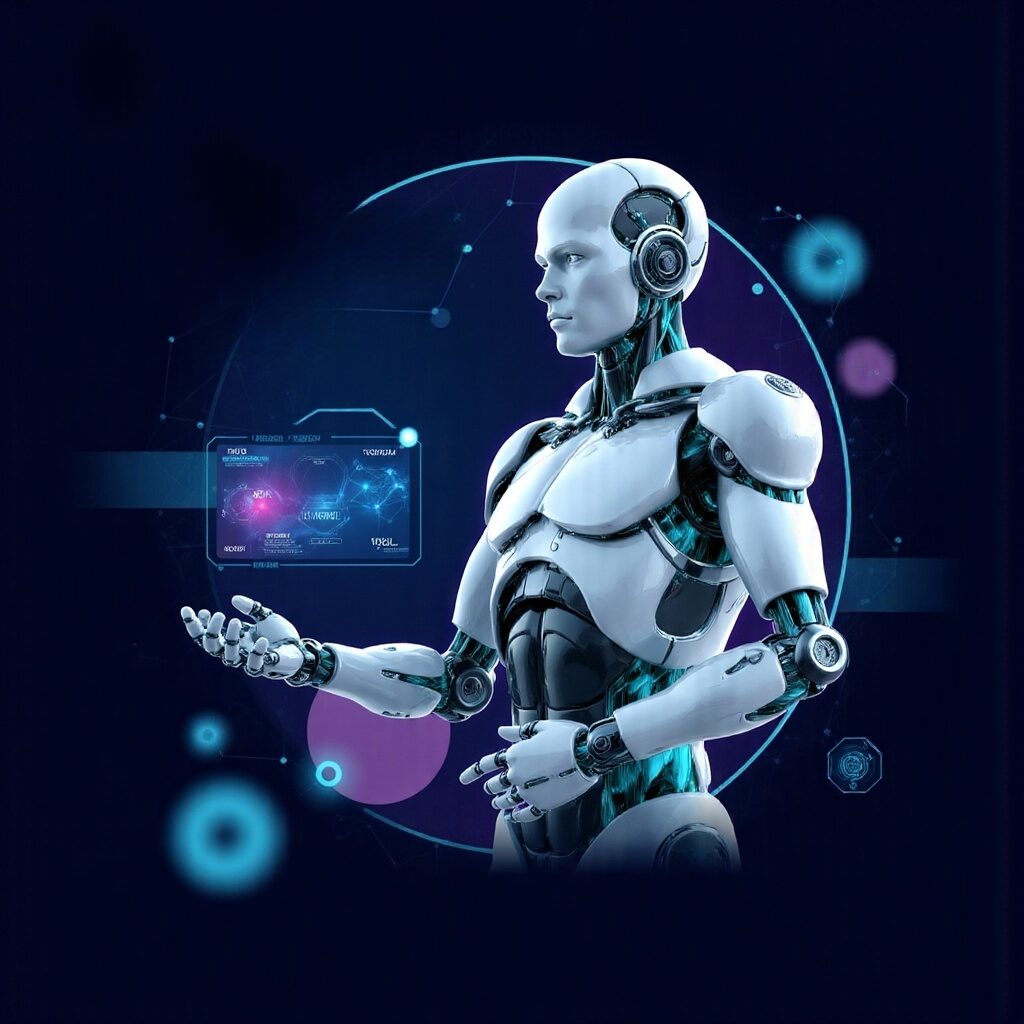Within today’s digital-first landscape, a quiet revolution is transforming customer service and business operations. Behind your favorite websites and apps, sophisticated digital assistants, known as AI Chatbots, are working tirelessly, answering questions, scheduling appointments, and solving problems—all without human intervention. These AI Chatbots have evolved from clunky, script-bound programs into intelligent conversation partners that can understand context, learn from interactions, and deliver personalized experiences at scale. For businesses facing rising customer service costs and increasing consumer expectations, AI Chatbots represent not just a technological advancement, but a competitive necessity in the modern marketplace.
NOTE: If you’d rather WATCH this content, SCROLL down to the YouTube video provided for your convenience.
The Impact of AI Chatbot Technology on Customer Experience
The integration of an AI Chatbot can significantly enhance user engagement and satisfaction, making it an essential tool for modern businesses.
Before we dive into the chatbot rabbit hole, let’s map our journey through this fascinating technology:
- The evolution of chatbots and their current technological capabilities
- Key benefits of implementing chatbots for businesses (cost savings, 24/7 availability, scalability)
- Different types of chatbots and their specific applications
- Best practices for chatbot implementation
- Future trends in chatbot technology (AI advancements, voice integration, etc.)
The journey of chatbots began in the 1960s with ELIZA, a simple program that could mimic conversation by pattern matching. Fast forward to today, and we’ve entered an era where chatbots powered by sophisticated artificial intelligence can handle complex conversations with remarkable human-like qualities. Modern chatbots utilize natural language processing (NLP) and machine learning to understand user intent, remember conversation context, and continuously improve their responses.
According to Gartner, by 2022, 70% of white-collar workers were regularly interacting with conversational platforms. This dramatic adoption rate reflects the technological maturation of chatbots, which now leverage deep learning models with billions of parameters to parse language nuances that would have been impossible just five years ago.
The proliferation of AI Chatbots has prompted businesses to rethink their customer engagement strategies and embrace digital transformation.
For businesses, the appeal of chatbots extends far beyond the novelty of automated conversation. Juniper Research estimates that by 2023, chatbots will save businesses approximately $8 billion annually in customer support costs. This remarkable ROI stems from several key advantages chatbots offer to organizations across industries.
Incorporating an AI Chatbot not only improves efficiency but also helps brands maintain a consistent voice across all customer interactions.
Perhaps the most obvious benefit is cost efficiency. A single chatbot can handle thousands of conversations simultaneously, dramatically reducing the need for large customer service teams handling routine inquiries. IBM reports that chatbots can answer up to 80% of standard questions, allowing human agents to focus on more complex issues that truly require human empathy and problem-solving skills.
Furthermore, with the rise of AI Chatbots, companies can gather invaluable data on customer preferences and behavior, informing future business decisions.
The 24/7 availability of chatbots also provides a significant competitive edge. In our global economy, customers expect service regardless of time zone or business hours. Chatbots meet this demand effortlessly, providing consistent service quality at 3 AM just as effectively as during peak business hours. This always-on capability has been shown to increase customer satisfaction by up to 24%, according to Accenture.
As customers increasingly expect immediate responses, an AI Chatbot can meet these demands effectively, making it a cornerstone of customer service.
Scalability represents another critical advantage. During unexpected demand spikes, traditional customer service operations often buckle under pressure. Chatbots, however, can scale instantly to handle sudden increases in volume without degradation in response time or quality. This elasticity proves invaluable during product launches, marketing campaigns, or seasonal peaks.
Not all chatbots are created equal, however. The market currently offers several distinct categories, each suited to different business needs. Rule-based chatbots follow predetermined conversation paths and work well for straightforward processes like appointment scheduling or order tracking. AI-powered conversational bots can handle more complex interactions, understand intent regardless of phrasing, and learn from each conversation to improve future responses.
AI Chatbots can be tailored to suit various industries, ensuring that the unique needs of each sector are addressed comprehensively.
Virtual assistants like those from Google, Amazon, and Apple represent the most sophisticated category, combining multiple AI technologies to handle a wide range of tasks while maintaining conversation context across different topics. Industry-specific chatbots have also emerged, with specialized knowledge for healthcare, financial services, retail, and other sectors.
By leveraging AI Chatbot technology, businesses can significantly improve their operational efficiency and customer retention rates.
Implementation success depends largely on following established best practices. Research from Forrester indicates that businesses achieving the highest ROI from chatbots begin with clearly defined use cases rather than attempting to automate everything at once. Starting with high-volume, straightforward processes allows for quick wins while building organizational expertise.
Personality design also proves crucial. The most effective chatbots reflect brand voice and values in their communication style. Companies like Sephora and Starbucks have excelled by creating chatbot personalities that feel like natural
Consequently, investing in an AI Chatbot can yield substantial long-term benefits for companies navigating the digital landscape.





[…] the same principles that kept your unit functioning under pressure can be systematically applied to business success—if you know…
[…] formed in service. While civilians network at happy hours and conferences, veterans already have a community forged in circumstances…